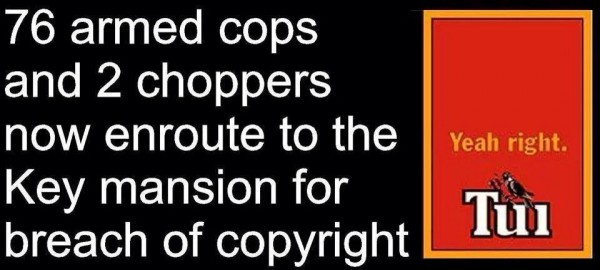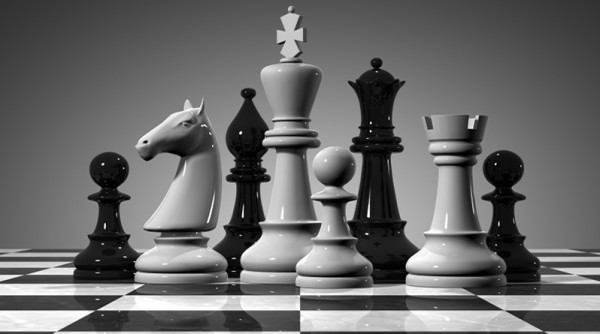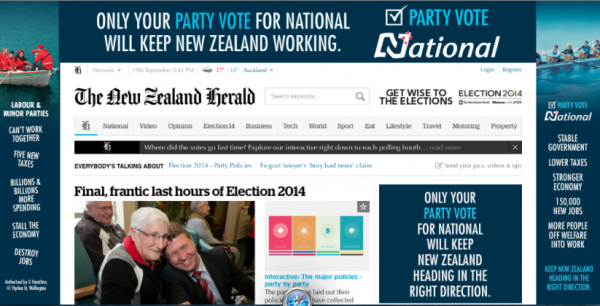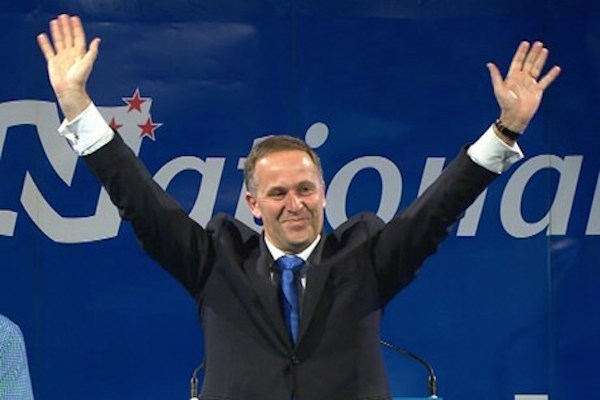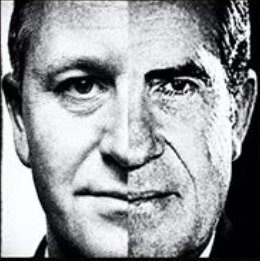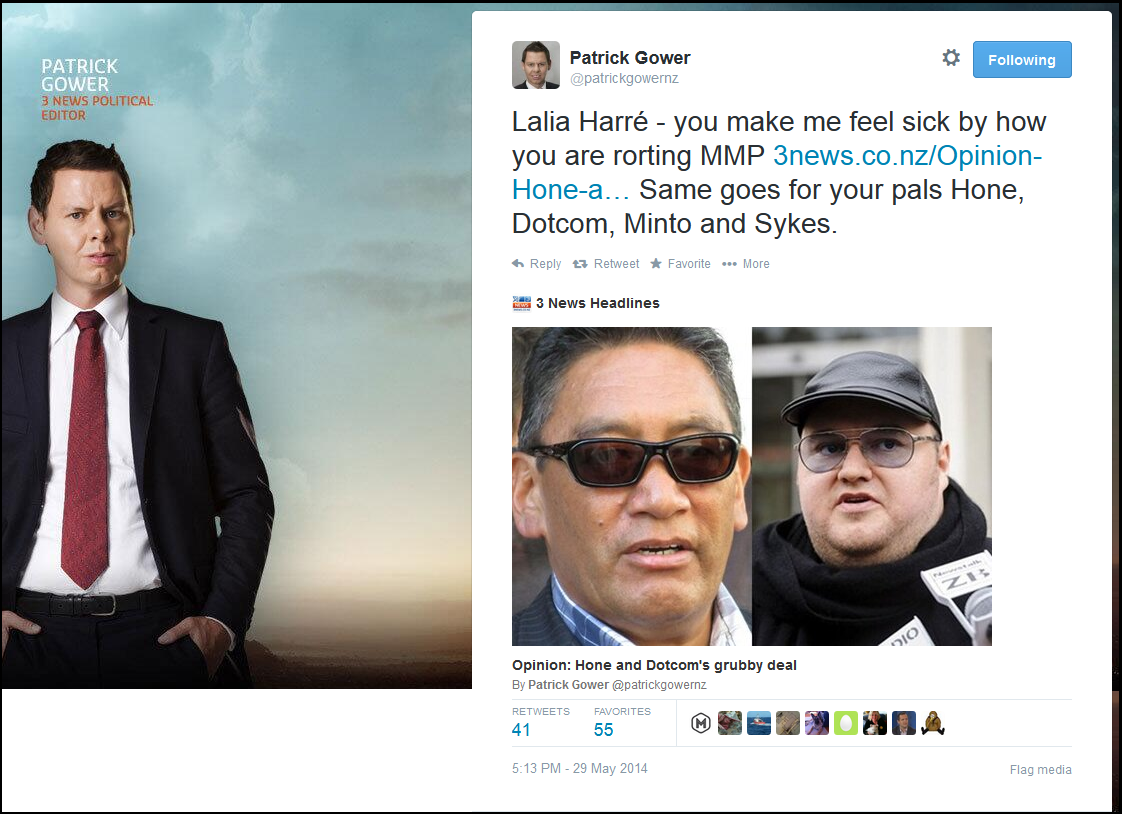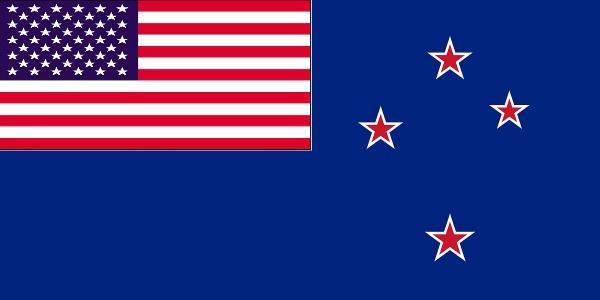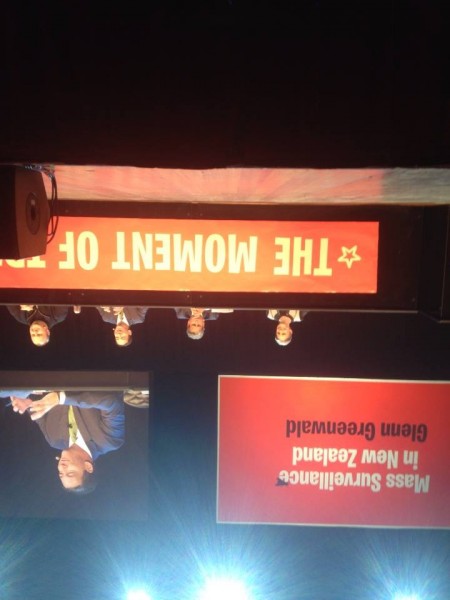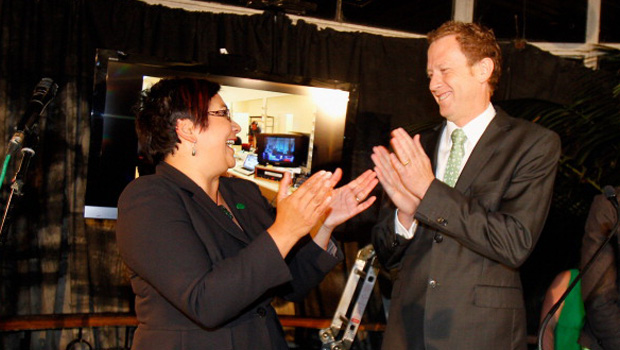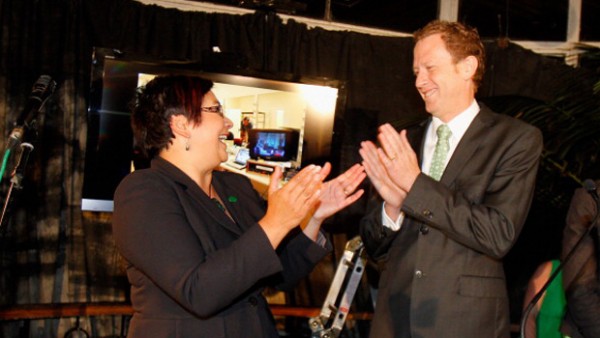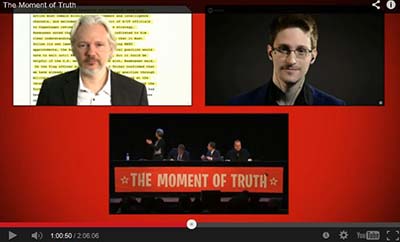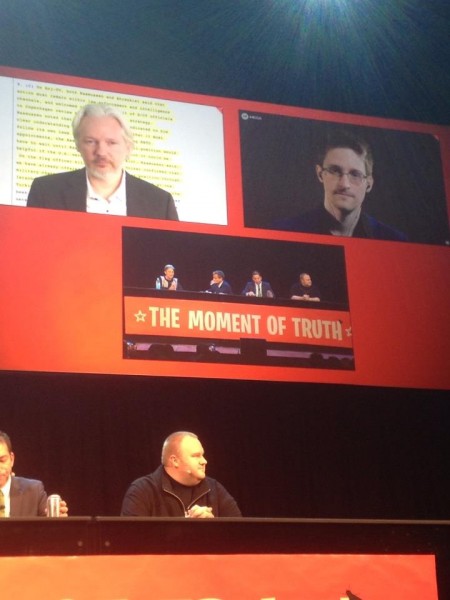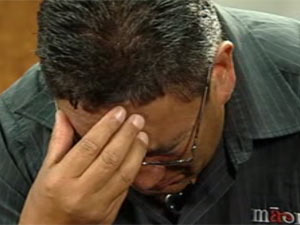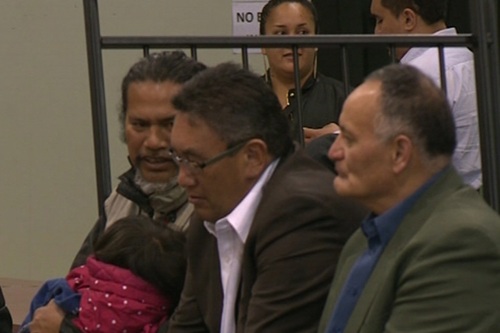So we can expect this now?
Can Labour be saved? Why Whaleoil & National won and why we need a new media
As the shock of my optimism that NZers would recoil from the real John Key as exposed by Dirty Politics and mass surveillance duplicities wears off, I am surprised to find that the right in NZ are not content with National winning an outright victory, the right wing of NZ would now like to appoint the Labour Party leader as well.
I still need some time out from blogging and still intend to step back while I think through some ideas on how we stop a juggernaut like National , but there are 3 things I’d like to focus on as a response to the election and the NZ Herald’s sudden need to pick the leader of the opposition.
1. Can Labour be saved?
2. Why Whaleoil and the National Party won
3. Why the Left needs a new media.
Can Labour be saved?
The Labour Party of NZ need to work out what they are. Are they a modern democratic party whose members and affiliates have an active say in the shape and direction of the Party, or are they merely a political management team who work to not spook the corporate forces of capitalism when National get tired of Government?
That’s the question it faces as it descends into the inevitable blood letting of the next leadership fight.
The changes made within the Labour Party to give members and affiliates real say have always been despised by some within the Labour Party Caucus. They want members and affiliates to be dictated to not listened to, hence the resistance to change, hence the mass sitting on hands some conducted during the election, hence the sudden knives out for Cunliffe.
Cunliffe has attempted to appease those in Caucus so affronted by the members and affiliates decision to appoint a leader they didn’t want and I think that appeasement has created a politician who has both hands tied behind his back. Cunliffe has shown the Party a loyalty those in Caucus have not shown him. Trevor Mallard went on a bloody moa hunting expedition in the middle of the campaign for Christ’s sake, Cameron Slater’s mate, Kelvin Davis, went rogue and ended up being endorsed by Kiwiblog, Whaleoil and John Key and ‘someone’ inside Labour kept leaking as many damaging criticisms as possible to the media.
These same voices are now the forces behind removing Cunliffe because apparently Cunliffe went ‘too far to the Left’. Since when was affordable housing for the middle classes, better investment into education and a Capital Gains Tax on an over heated property market considered ‘too left wing’?
The argument that Shearer who was polling highly could have done better is a total re-write of history. Remember how Shearer performed in the media, do we need a reminder?
There’s a reason why Shearer gained the nickname, ‘Captain Mumblefuck’. Does anyone think he would have survived a minute in the debates with Key? Whoever takes over as leader, surely it should be someone who doesn’t manage to contradict themselves within the first 60 seconds?
The claim that Stuart Nash somehow holds the magical answers based on his win seem infantile at best. Nash won because Garth McVicar split the vote, to think voters who loved someone as polarising as Garth would vote Nash doesn’t help Nash’s cause. Neither does all the undying love being given Nash by Whaleoil.
Cunliffe hasn’t helped his cause by his micromanaging of everything. He trusts so few within his Caucus he takes on every job and does it himself. This alongside his attempt to placate the anger of the ABCs rather than challenging it head on has made him look weak. That was abundantly clear today when he wouldn’t throw himself on his own sword and resign the leadership and demand a primary contest to put up or shut up the ABCs. His attempt to play by the agreements his Caucus have made while his challengers are openly disregarding that might be the honest thing to do, but it looks timid.
Changing leader won’t make a lick of difference. The activist base Labour relies on will walk if a more ‘centrist’ approach is taken because seriously, how much more ‘centrist’ does Labour want to go? Fantasies of Labour being a 40% Party again would only happen if Labour adopted all of National’s policies and ignore the MMP reality of the Greens. The Greens aren’t going to whither and die, they will only grow and expand, to turn guns on the Greens would be remarkably counter productive.
The problem is that the Labour Party is a damaged and wounded beast that is in desperate need of rejuvenation and has been in need the moment Helen Clark stood down. For Cunliffe to be serious about becoming leader again, he needs to take the gloves off and stare down those ABC elements and force them out. Once done, the Party needs a complete rebuild and overhaul. The party machinery is damaged, resources have been blown on people who shouldn’t be there and ABCs have built fiefdoms that have little to do with the functioning of anything other than turf protection.
What is the alternative? David Shearer? He can’t answer questions and that might prove to be a challenge given that the media tend to like answers. Grant Robertson? If the issue was that Labour didn’t connect with ‘real NZers’, how will a central Wellington policy wonk go down with them? David Parker? Parker is a bookish chap, very smart with all the charisma of week old porridge. Nash? Well, Nashy has the absolute support of Cameron Slater so that might be the kiss of death.
If Cunliffe is serious about remaining leader then he has to show some actual leadership and fight the ABCs off. Otherwise it will be Nash as leader with Robertson as deputy who will emerge as the leadership team and set about alienating the entire activist base as they seek to stumble back towards the mythical ‘centre’. If affordable houses, higher taxes for the rich and better funded public services is ‘far left’, where the bloody hell would the ABCs want to take Labour?
The danger is that even if Cunliffe is re-elected by the membership and affiliates, the ABCs will refuse to accept his leadership. The ABCs do not want to have to listen to the membership or affiliates, they want to make the decisions themselves free of such silly things like gender equality and social justice.
The issues that concern the activist membership are being written off by the ABCs as fringe niche madness that will kill the Party. I think that’s convenient and simplistic.
If you look at the Party vote break down for Labour…
Seat Labour MP/Candidate Change
Mt Roskill Phil Goff -8.21%
Hutt South Trevor Mallard -7.86%
Mt Albert David Shearer -7.12%
…there is a stunning correlation between membership of ABC and poor party vote performance.
So why did Cameron Slater and National win such a thundering victory?
Why Whaleoil and the National Party won
The right wing inside and outside of the Labour Party will say that Labour under Cunliffe was out of touch with ‘average’ NZ. That affordable housing was ‘too left wing’, that a $15 and $17 minimum wage was ‘too left wing’, that a first start payment for new borns and extended maternity leave was ‘too left wing’.
The fact that any of those things are considered ‘too left wing’ is evidence of what 30 years of neoliberalism has done. The centre has moved so far to the right that Caligula is considered a card carrying member of the Communist Party.
There are many reasons why Key and Slater won. One reason was the total disunity within ABCs furious they had to put up with Cunliffe. Voters hate disunity as much as they hate the All Blacks losing to Australia.
Another reason was Kim Dotcom.
Kim became a hate figure in the exact same way Ahmed Zaoui did. Keith Locke has done an incredible blog pointing out how the media spin lines managed to unwind every argument made so that it was Kim who suddenly became a hate issue in the way the repeal of Section 59 became a hate issue.
The repeal of section 59 closed a legal loophole that allowed abusive parents to escape assault charges on their children in front of the Courts. That’s what the law did, but if you ask your ‘average’ NZer what the repeal of section 59 was, they will stare at you blankly. If you prompt them with ‘the anti-smacking legislation’ watch them wind up and scream. Even though only a few parents have even been prosecuted since the legislation passed, the total wilful ignorance most NZers have towards the repeal of section 59 blots out any rational discussion. If you challenge your average NZer on the law and point out that previous to the law change abusive parents who were being charged for assaulting their children were getting away with it by claiming ‘discipline’ as a defence, they pause, gulp and mumble something about ‘nanny state’. Most kiwis have no bloody clue as to what the law was about and even less understanding that their devout hatred of it would actually allow more abusive parents to get away with abusing their kids.
Kim Dotcom became this elections ‘anti-smacking’ law.
It didn’t matter that Kim was set up in coming to NZ so we could hand him over to the US. It didn’t matter that Corporate Hollywood was using him as an example to be punished. It didn’t matter that days after Hollywood’s chief lobbyist threatened to withhold donations for Obama’s 2012 re-election campaign that the White House launched their legal action against Kim Dotcom. It didn’t matter that 70 armed paramilitary police raided his home, beat him up, frightened his family and stole all his wealth. It didn’t matter that the evidence gathered against him was taken illegally by spying on him. It didn’t matter that the Prime Minister then appointed his old school chum to head the GCSB and made all that spying legal and it didn”t matter that it turned out the very legislation Key assured us wouldn’t lead to mass surveillance actually did.
None of that matters. Kim was suddenly this evil influence of big money in politics. The irony of course is that the big money was with National and allowed them to do this…
…wall to wall media coverage. Just like the repeal of section 59, NZers decided that Kim was evil and no justification could unpick that. Of course Kim didn’t help himself at times and I think was ill advised at crucial moments, but that doesn’t mean that what has been done to him was acceptable nor is it valid to criticise him for choosing to fight back.
The third most important reason why Cameron Slater and the National Party won however was the reason Nicky Hager stated – dirty politics had worked.
I was naive in the extreme to think that 6 years of Slater’s toxicity could be cured months out from the election by the truth and it couldn’t.
The Left will will be told that we didn’t connect enough to ‘average’ kiwis, I think that’s bollocks. The ‘average’ Kiwi was as led in their dislike of Kim as they were led in their manufactured outrage of the repeal of section 59.
Which leads me to the media.
Why the Left needs a new media
When Jason Ede can be sacked/quit on the eve of the election and not a ripple made, that shows you the effectiveness of the bias of the mainstream media. What the campaign did was what Lusk was hoping for, to turn voters off and the pathetically low voter turnout proved what a turn off it was. Yes it was a couple of percentage points higher that 2011, but that was from a smaller number of people enrolled to vote, so the difference between the worst voter turn out in a century and this election was less than 1%.
The character assassination of Cunliffe hit its high tide mark with the farcical Donghua Liu ‘scandal’. There was no $100 000 bottle of wine, there was no $15 000 book and there was no $150 000 donation, the entire thing was another example of Dirty Politics. The compromised NZ mainstream media, many of whom were in bed with Slater as a source, lost its function as the watchdog of power and became the lap dog for power. This narrative construct means no matter what Labour or the Greens try and do in the next 3 years, they will be met with the same Press Gallery hostility.
Helen Clark was crucified for power saving lightbulbs, water efficient shower-heads, a speeding ticket and signing a painting she didn’t paint. Key on the other hand has managed to get away with his henchmen rigging candidate selections, handing over secret intelligence information to humiliate a political opponent, hacking into Labour’s computers, attacking public servants , blackmailing an MP and trying to undermine the head of the Serious Fraud Office.
The double standards when comparing Clark’s supposed sins and the corrupt abuses of power Key has regularly indulged in are a sick joke.
That’s why the Left beyond the political parties needs a new counter weight against the mainstream corporate media. It’s an idea that many across the Left are already contemplating.
The magnitude of the loss on Saturday can not be underestimated, but if the pool of voters are smothered in the manufactured garbage of the mainstream, then no amount of appealing to the average kiwi will do the opposition any good. We need to articulate a different voice and refuse to be defined and locked in and limited by our opponents in Parliament and those in the overwhelmingly right wing media.
We are not just fighting National, we are fighting the entire media industry of NZ as well.
The day we allow the Herald and Seven Sharp to define who we are as progressive political movements, is the day we end being progressive political movements.
We must present a better vision and provide the medium for that vision to be articulated while constantly challenging the limitations those in the media wish to consign us to.
If we can’t do that, Dirty Politics remains the winner.
Three more years (up shit creek and paddling hard)
“If the future is not green, there is no future. If the future is not you, there is no future”. Emma Thompson’s stirring words to the climate marchers in London last Sunday are worth considering in the aftermath of the National Party’s stroll to victory in the election.
What does the National Party’s victory mean for climate action? Barring some sort of third term sea change at the heart of the government, it means another three years of business as usual.
Three more years of emissions growing, three more years of expansion in emissions intensive agriculture, three more years of corporates rorting the emissions trading scheme, three more years of a failure to prepare for climate extremes, three more years of road building. Most importantly, it means three more years heading in the wrong direction, locking New Zealand into future costs it need not face.
John Key and his cabinet are apparently determined to carry on rowing the country up shit creek, and will no doubt attempt to ditch the paddle some time before the next election.
Key and Co may not recognise that they are up shit creek. In their world view, everything may still be wonderful. Their corporate sponsors are making money, and middle New Zealand is still voting for them.
But they are rowing against the tide. The laws of physics are not decided at the ballot box, and they are committing the country and the planet to future warming. As Thompson points out, we have no option but to live in a green future.
This is not a matter of politics, not a matter of left versus right. Just as the fight against apartheid was a moral imperative, we will need solutions for emissions reductions and climate adaptation whatever the ideologies of the politicians that make the policy.
Climate change just is, and we need to get on with fixing it. What we do will be decided by a political process, but it won’t be long before every politician will have to accept the inevitability of being green, will have to face up to the certainty of climate change and the inevitability of managing the damage it brings.
This will be challenging for the National Party, which has long flirted with climate denial. But there will come a time when Key & Co have to adjust to the new reality. Time for the Bluegreens in the party to start lobbying the cabinet for action. They have been far too willing to cave in at the first sign of economic or ideological inconvenience, but they are as much a part of a climate solution for New Zealand as the Green Party or Labour.
As Nicholas Stern points out in a recent Guardian interview centred on his latest report on the economics of climate action:
“For me the two defining challenges of this century are overcoming poverty and managing climate change.
“We fail on one, we fail on the other. So I think to say that we should just switch off growth is to miss big aspects of what matters about poverty. And so it worries me. It’s also politically very naive. If you turn it into a pissing contest between growth on the one hand and climate and environment on the other and say you’ve got to choose, you’re setting yourself up for failure.”
John Key is clearly setting NZ up for climate failure. Environmentally-aware people of all political persuasions are going to have to put that right, and make sure that climate policy is not something that can be ignored for the next three years.
One Party State
In years to come this election will be seen as a historic turning point towards one party rule. I don`t mean this literally, absolute single party dictatorship is not in prospect. In the New Zealand context though, one party has entrenched its dominance over the others. On the election night numbers National gained a Parliamentary majority, achieved twice Labour`s share of the vote and looked well placed for a fourth term. The conventional electoral cycle whereby centre right and centre left coalitions govern more or less alternately looks to be over. As National rules supreme, the left part of the party political spectrum has either fragmented or disappeared. The real situation here is actually worse than the election results suggest.
Let me explain.
I have argued previously that `National and Labour are not separated by a left right dividing line. Instead, this line runs down the middle of the Labour Party` (`Right versus Left` Daily Blog Jan. 16 ,2014). Objectively, the Labour right, in Caucus and outside, has served as a fifth column for the National Party. Just look at the record. Back in late 2013 the Labour right worsened internal party strife by obstructing constitutional reform. After David Cunliffe became leader they undermined his position by leaking to the media and a well known right wing blog. During the election campaign they conspired against Hone Harawira on behalf of Kelvin Davis and wiped out Internet-Mana`s small but significant percentage of the anti-Key vote. National`s strategists must have been jubilant, they had willing accomplices acting entirely on their own initiative. Incidentally, New Zealand First`s role in the Te Tai Tokerau assassination will live long in ignomy. Winston Peters is genuinely committed to the principles of national economic sovereignty, yet he undermines another political leader with the same outlook. Does he not see that an economic nationalist platform cannot be built without inter-Party discussion which includes Internet-Mana, the Greens and Labour ? Narcissism won out in the end, to National`s great advantage.
One party rule requires a cult of personality. The leader must pervade popular culture, the media domain and everyday life. During the election campaign anybody driving from Wellington to Auckland along state highway one would have seen John Key`s billboard image continually flashing by. The leader is enthusiastically endorsed by prominent sports people including Daniel Carter, Jonah Lomu, Israel Dagg along with gold medal rowers Eric Murray and Hamish Bond. Photos of All Black captain Richie McCaw next to John Key have been widely published. On election day Lomu, Dagg, Murray and Bond tweeted for John Key and/or National. These flagrant breeches of the Electoral Act will never be prosecuted by the Electoral Commission, another sign, perhaps, of one party rule. John Key himself turns up in many places on many occasions often with a TV camera in attendance. Historically, his public profile exceeds that of Robert Muldoon and Helen Clark. They were pre-eminent in their time but John Key simply crowds out all other political figures. Many of the growing number of immigrant voters born outside of New Zealand can name no other politician. National is the only party they care to vote for. Exceptions to this rule have no political leverage as the election night figures show.
Of course dominant political personalities don`t last forever; National may well experience succession problems when John Key leaves the stage. Of more concern is the structural dominance of the National Party as such. Compared to opposition parties National is wealthy and generously funded, by corporate backers whose primary motives are wealth defence, profit maximisation and the freedom to exploit workers. Consequently, a formidable political machine has been assembled and built. Its interlocking components include constant market research into voter preferences, feelings and concerns, real time survey data provided by National aligned polling companies in response to unfolding political events and a slick communications management operation which positions John Key as a national icon above the political fray.
The other, crucial component is `dirty politics` whereby political opponents and other anti-Party figures are personally ridiculed and attacked on right wing blogs (with assistance from government operatives close to the Prime Minister). Nicky Hager has exposed this component of the machine; it will be put into storage for now, to be re-calibrated when the furore goes away.
One party states require a compliant media. New Zealand is performing well in this regard. Newstalk ZB, Radio Live`s Sean Plunket and TV 3`s Paul Henry operate like mini-Fox news outlets reproducing the neo-liberal outlooks and prejudices of the Party. The rest of the mainstream commercial media, subservient to ratings figures and advertising revenue, are of no worry to the government. Remaining outposts of critical journalism commentary on public radio and Maori Television are vulnerable to political and funding pressure. On the subject of prejudice another thought comes to mind. One party states require targets of vilification. Of late , Kim Dot Com has been that target. In my view his flaws and shortcomings pale into insignificance compared to the bloggers, public relations practitioners and government operatives mentioned in Nicky Hager`s book. Former directors of our failed finance companies who have cheated New Zealanders out of millions receive only occasional media scrutiny. The wealthiest of them have escaped legal sanction. Dot Com`s vilification also reflects deep seated anti – German sentiment. Stereotypes originating from Hogan`s Heroes and World war Two Commando comics were spread like muck throughout the Te Tai Tokerau electorate. The same prejudices also reside within the mainstream media and our one party state. The illegal invasion of Dot Com`s home and property was disproportionate to the alleged offences. Financially benefitting from anothers intellectual property is central to the business models of all social media corporations. They are too powerful for the traditional film and media companies so it is the Megauploads of this world that are targeted. In any case Kim Dot Com has performed a major service for his newly adopted country. Without his technical expertise we would not have seen the testimonies of Edward Snowden and Julian Assange concerning mass surveillance of New Zealanders courtesy of the NSA and our newly empowered GCSB. In part,because of this contribution to democratic debate, Dot Com is positioned as an enemy of the state, a one party state whose arrogance knows no bounds.
No More. The Left Falls.
.
We cannot be beaten down
Because we are down already.
We can only rise up
and if you should beat us down,
We will rise again. And again. And again…
And when you tire of beating us down,
We will rise up once again,
And look our Oppressor in the eye,
and say, ‘Rise up with us, brother,
for you may yet share our pain’.
– FM
.
As passions settle, disappointment wanes to something approaching tolerable, and we start to look at things a bit more rationally, it’s time to review the last few days, weeks, and months…
Without a doubt, it is safe to say that the Left never expected expected the two results of the Election Night figures.
- That National would score so highly, at 48.06%, (Specials still to be counted)
- That the Left would fare so poorly that even NZ First’s credible 8.85% result would make no appreciable difference to National’s success.
Once again, it appears that the Non-Voters – traditionally mostly Labour or left supporters – gifted National the government for a third term;
Roughly a million people didn’t show up to vote for Saturday’s election, making it one of New Zealand’s worst turnouts in the last century.
An estimated 77.04 per cent of enrolled voters took part in the election, slightly higher than the 74.2 per cent turnout in 2011, which was the worst in percentage terms since before women got the right to vote in 1893.
This year’s result still ranks as the third-worst turnout in the last 100 years, with the number of non-voters almost tallying to the number of votes that went to National.
The estimated results are based on the 2,405,652 votes received before voting closed, which includes nearly 300,000 special votes that are yet to be counted.
Interestingly, in the same Fairfax article, Victoria University politics professor Jack Vowles said,
“A small increase in turnout is what we would expect. There’s been a downward trend of turnout for some time, so any increase shows something has changed.”
My suspicion is that the polarising effect of John Key may have motivated more people to engage in voting. My own experience lends some credence to this, with past non-voters this year keen to engage in the electoral system. In plain english, Key has pissed off people to such a degree that they expressed their feelings through the ballot.
Unfortunately, the Left was in no position to focus this anger in any meaningful way. Young people chanting in unison, ‘Fuck John Key‘, may have been fun and cathartic – but it ultimately failed to translate into valuable votes.
Meanwhile, I offer my post-mortem, observations, and views of events…
David Cunliffe
I am not one to pick and choose Party leaders – especially for Labour. Besides which, I’ve always been more interested in policy factors than pretty faces.
However, I will offer my ten cents + 15% GST worth.
Has it ever occurred to the Labour caucus that replacing your Leaders after every electoral loss is counterproductive? I offer three reasons for this assertion;
1. How do you test your Leader in the fires of adversity, if you keep replacing him (or her) after each electoral loss? If your Leader is proven in victory – but unknowable in defeat – are you not missing a vital measure of the man (or woman)?
2. Replacing your Leader after each defeat sends a curious message to the public. It suggests that you’ve made a mistake with your Leadership selection. In which case, if/when you choose a new Leader to replace Cunliffe – is that a mistake as well? If you have no faith in your Leader, even in dire adversity, why should we – the voting public?
3. It takes years for a Leader to become known and familiar to the public. Years to gain their trust. If you keep rotating your Leadership, you are in effect putting an Unknown Quantity before the public who will never get a chance to assess the man (or woman).
It took three terms for the public to get to know Helen Clark. After which she led three consecutive Labour-led governments.
For god sakes, learn from history.
Or be consigned to it.
David Shearer
I understand David Shearer’s simmering anger. I really, really do. If I was in his shoes, I would’ve gone ‘thermo-nuclear’ by now.
But he does himself and the Labour Party no favours with his behaviour in front of the media.
Shearer has every right to be angry. But dignity and self-discipline is a far better course of action than publicly under-mining his Leader. After all, when/if he assumes the Labour leadership again, he would expect a modicum of public loyalty shown to him.
Two words: Kevin Rudd.
Hone Harawira
The more times I met Hone Harawira, the more times I have been thoroughly impressed with this man. The word ‘mana’ was created to describe his real personality- not the isolated snippets chosen by the media to portray him as a “mouthy brown boy”.
Hone was condemned – mostly by the Right and a headline-seeking media and commentariat – for the ‘crime’ of having a rich benefactor.
Meanwhile, the National Party has a plethora of rich benefactors – and no one bats an eyelid.
Unfair? Of course it is.
But that’s New Zealand in the 21st Century. As a society, it seems we left fairness behind when we allowed ourselves to be tempted by neo-liberalism’s promises of “aspirationism” and shiny consumer goods.
Men and women like Hone Harawira still exist in our fair, if considerably less-than-100%-Pure, country. But their values and notions of fairness, decency, and helping one-another is something that the public view with suspicion as a quirky notion from last century (much like Queensbury rules when two men engaged in fisticuffs) – and which an increasingly cynical, lazy, and politically-captured media treat with disdain and derision.
The media subtext of Hone’s relationship with Kim Dotcom was simple; “You can be a ‘champion of the poor’ as much as you like. We’ll write patronising (if somewhat racist) stories about you to paint you as a loud-mouthed radical engaging in ‘envy politics’.”
But the moment Hone’s Mana Movement got all cashed up, things changed.
National is allowed money.
Even Labour.
NZ First and the Greens rely on branding for success.
But parties representing the poor? No way. The rule from On High was simple: You want to represent the Poor and the Powerless? Fine, but you stay poor and powerless.
Hone broke that rule.
John Key
Key’s victory speech was par-for-course, and well scripted for him by his tax-payer funded spin-doctors and media minders. The speech was a mix of humility and delight in his victory.
Part of Key’s election night victory speech referred to “serving all New Zealanders”,
“I can pledge this to you, that I will a government that governs for all New Zealanders.”
In fact, it seemed a re-hash of his 2011 victory speech,
“I will lead a government that serves the interests of all New Zealanders…”
Key’s sentiments were repeated in a John Campbell interview on 22 September, (the interview is worthwhile watching) where he spoke at length about his concerns for the most vulnerable in our society. He pledged a third term Key-led government to improve their lives.
Trouble is –
- His government has spent the first two terms doing very little about rising child poverty,
- tax cuts have benefitted the most well off,
- Increases in GST, prescription charges, and others costs-of-living have impacted on the poorest,
- Inequality has increased,
- Wages have fallen even further behind Australia
If Key failed to address the lot of the poor in the first six years of his governance – why should we take his word for the next three? Especially as National has lined up new legislation to further cut back worker’s rights; the Employment Relations Amendment Bill.
Marginalising workers’ rights will not reduce poverty; create jobs; or lift wages. It will only maximise profits for companies at the expense of workers.
As the editorial for the Otago Daily Times stated on 22 September,
“But while he is rapidly becoming one of this country’s most ”popular” prime ministers, there remains a gulf before he can go down in history as a ”great” prime minister. If that is Mr Key’s ambition, he is going to have to show that his role is, indeed, to serve all New Zealanders.
He and his Cabinet will have to strive to care for families, to try to ensure the poor are supported and not consigned to a demeaning and destructive underclass future. As well, alongside pursuit of economic development, this Government is going to have to protect the environment.”
Talk is cheap.
Actions count. So far, we’ve seen precious little of it.
I look forward to being proved wrong.
Kelvin Davis
The day after Election Night, my feelings were running high and my views coloured by my passions. I may have written some things that, as my passions cooled, I reflect more wisely on matters in the clear light of day.
Not so with Kelvin Davis.
I stand by my initial statements;
Davis did not “win” Te Tai Tokerau. It was “gifted” to him as a dirty little rort, when John Key, Winston Peters, and the Maori Party told their supporters to vote for Davis, over Hone Harawira.
This was a disgusting, shabby example of dirty politics.
Kelvin Davis is “Labour” in name only and, like Peter Dunne and David Seymour, he should not forget who his political patron really is: John Key. Davis is John Key’s errand boy.
Who knows – one day Key may call in the debt David owes him?
“For what does it profit a man to gain the whole world and forfeit his soul?”
Kim Dotcom
Kim Dotcom has been vilified and made the scape-goat of the election by many. As if Hone Harawira’s defeat has validated the views of the Right Wing, and those who see Kim Dotcom as the villain of the piece.
I offer a counter-view, and one I believe equally as valid.
Let us not forget a few pertinent facts about Dotcom;
- He was allowed entry into New Zealand by John Key’s government.
- Dotcom has committed no crime in this country. He has yet to be tried for copyright infringements – a civil matter, not a criminal offense. And his convictions in Germany happened when he was 19 years old – a time when young people often fall foul of the law with drugs, alcohol, violence, driving offenses, teen pregnancies, etc. He is no criminal “mastermind”, despite the obsessive rantings of the Right. Dotcom’s past criminal record is only an affront to Right Wingers because he supports the Left.
- Dotcom was instrumental in uncovering the fact that the GCSB had illegally spied on eighty eight New Zealand citizens or Permanent Residents. Until then, we had no idea what had been happening under successive Labour and National governments.
- Dotcom has also uncovered the very real likelihood that the NSA/GCSB has been engaging in mass surveillance in this country – despite protestations to the contrary by our Prime Minister (not noted for his scrupulous honesty) and the former GCSB director Sir Bruce Ferguson (under whom illegal spying had been taking place for years).
- And Dotcom uncovered John Banks’ own dishonest activities regarding his election financial returns, resulting in the former ACT minister’s conviction and resignation from Parliament.
Kim Dotcom’s real ‘crime’ has not been copyright infringement.
His real ‘crime’ has been to turn his back on his fellow millionaires and political elites – the Oligarchs for whom power is the oxygen that sustains them – and to give financial support to one of the few people in this country to threaten their privileged positions: Hone Harawira.
For the Right Wing – and the infantile lackeys who act as their on-line henchmen by constantly posting anonymous message demonising Dotcom – this was an intolerable situation. They could barely tolerate Hone Harawira’s existence. But as long as Hone was one lone voice in the political wilderness, he was left alone. Kelvin Davis’ previous attempts to unseat Hone came to nothing.
But when radical left-wing politics and Big Money became entwined, Hone Harawira became a threat that could no longer be ignored by the Establishment.
First, some in the media responded. The venom dripped from this typical comment on social media, and was only less overtly spiteful in the mainstream media;
.
.
Because Big Money funding the National Party is not “rorting MMP”.
The vendetta – and that is precisely what this was – culminated in National, NZ First, and the Maori Party rushing at the last minute to endorse Labour’s Kelvin Davis;
.
.
.
Harawira’s fall was compounded by the ‘Moment of Truth’, on 15 September, failing to deliver certain promises made and hyped by Dotcom. Ironically, it was not sufficient for New Zealanders to learn that were were living in a Surveillance State and all our meta-data was being collected by shadowy agencies. It was not enough to realise that our on-line and telephone privacy was a thing of the past.
We wanted the ‘dirt’ on John Key. That’s where the real sensationalistic headlines lay for the MSM. That would sell several million bucks worth of advertising to the punters.
And when Dotcom failed to deliver – stymied by legalities, I am informed – the media and noisy aspects of the public turned on him. Being spied on by the State was apparently nowhere as bad as being denied a good political drama. We wanted Reality TV, made real, in our lounges, and our insatiable appetite for sensational gossip to be sated.
When that was denied us, we turned – like children denied access to our favourite TV programme or ‘grounded’ from internet access for 24 hours – on he who had promised us so much. We howled with rage and had Dotcom lived in our village, the good people would have gathered up their pitchforks and torches and made for his hut.
However, this is the 21st Century. We don’t do pitchforks and blazing torches any more (OSH would have a fit!). The mob is more sophisticated now. We do lynchings on-line and in the media.
Far more effective.
Fewer blood stains to wash out.
It has been said that part of our peculiar national psyche is something called ‘The Tall Poppy Syndrome’. In this case the tall poppies were two men who dared challenge the Establishment, and were cut down for their troubles. This time, though, it did not happen in secret, behind closed doors, concocted by shadowy figures.
It happened in full public view.
If you think this happens only in movies, in America, and the good guy(s) always win – think again.
It happened here. We just witnessed it. And the good guys didn’t win.
Not this time.
See also: Brand Kim Dotcom: what has changed?
Labour
One thing that Labour apparently excels at is self-mutilation. As a fund-raiser, it could make truckloads of cash by catering to certain folk with BDSM inclinations. One hour of a good, hard flogging, $250. Humiliation and discipline – $150 per half hour. (So I’m reliably informed…) Ok, so you have to wear a lot of sticky leather or rubber gear, but hey, it’s all for a good cause, right?!
Since Labour’s loss on election night, Labour MPs have been more vocal and active than all their last campaigning over the past six months. None it it, though, any good. Airing the party’s “dirty laundry” is an act that beggars belief.
If Labour MPs believe that their current media appearance on Radio NZ, TV3, TV1, et al, are doing them any good – let me disabuse them of that belief. It is self-destructive. It is self-harm on a party-political scale. It is sheer, unmitigated stupidity.
Attentions Messrs Shearer, Goff, Hipkins, et al – the public are watching.
Whoever leads the Party – whether it be Cunliffe or X – will be accepting a poisoned chalice that would fell a totara. It makes the Labour Party look like a bunch of self-serving fools or witless muppets – take your pick.
Is there any wonder why Labour keeps losing? Let me spell it out.
After each election defeat – 2008, 2011, 2014 – Labour indulges in public self-flogging and blood-letting. There is nothing remotely subtle or civilised or clever about the unpleasantness that follows.
It turns people off in droves.It turns voters away from Labour.
Three years later – another defeat.
Repeat cycle.
At this rate, Labour will become a third-rate Party, supplanted by the Greens which will become the main Opposition Party – and ultimately, along with NZ First (or it’s successor under Ron Mark) – lead the next Coalition Government.
This is how a once proud, proactive political party becomes an ossified institution, and ultimately irrelevant to peoples’ lives. Think – Alliance, post 2002.
To all Labour MPs, take my advice: STFU. Listen to your Leader (whether you support him or not) and keep your mouths closed. Sort your sh*t out in private, and in public, smile a Happy Face.
Otherwise, you can kiss your chances goodbye for 2017.
Media
The media pack is in full hunt. Their quarry – David Cunliffe.
I swear TV3’s Patrick Gower was salivating at the prospect of doing a “Nosferatu” on Cunliffe’s neck;
“Labour is in crisis tonight with leader David Cunliffe apparently refusing to give up the leadership, despite the party’s humiliating election defeat…
[…]
So Labour is now in a civil war, with Mr Cunliffe trying to gag MPs.
[…]
The five potential contenders show just how fractured Labour is. The caucus has atomised and another leadership spill is the last thing it needs.”
Labour MPs have emerged from a seven-hour crisis meeting – and leader David Cunliffe is still refusing to go.
After presenting the party’s new chief whip Chris Hipkins and his junior Carmel Sepuloni, he gave a short statement, but refused to say what happened in the meeting.
His MPs have given him a bloody nose with their choices.
“Labour needs to face the question of its leadership, nothing more. If Mr Cunliffe is going to appeal over the heads of his caucus to the membership and affiliated unions who elected him last year, he must imagine he can continue to lead a team that has little confidence in him. This will do Labour no good, as surely its members and unions now see.
It is in the nation’s interest that the party finds a new leader quickly.”
They simply haven’t announced it to the public.
Stuart Nash
Some commentators (media, political, and blogs) are still adhering to the fiction that Stuart Nash “won” the Napier seat. Election night results, however, paint a different picture entirely;
McVICAR, Garth: (Conservatives) 7,135
NASH, Stuart: (Labour) 14,041
WALFORD, Wayne: (National) 10,308
Contrast to the 2011 result:
NASH, Stuart: (Labour) 13,636
TREMAIN, Chris (National) 17,337
See where Tremain’s 7,000 votes went three years later?
Nash has now hinted he is “not ruling out” throwing his hat into the ring for an up-coming leadership challenge. If true, Nash’s colossal ego has outstripped his common sense entirely. He is deluded if he really believes he won his seat on his own merits. An extra 405 votes is not a mandate when his ‘success’ was predicated on his opponant’s vote being split by another right-wing candidate.
.
The heading of this piece is wrong. It’s not, “No More. The Left Falls.”
It should read,
.
The Left Falls, No More.*
.
* With acknowledgement to a recent BBC movie, about a certain quirky time travelling hero in a blue box.
.
References
Electoral Commission: Election Results — Overall Status
Fairfax media: Voter turnout near record low
Youtube: Fuck John Key! [New Zealand Revolution]
TV3: Former GCSB boss denies Snowden’s claims
Maori TV: Key wants Harawira to lose Tai Tokerau seat
NZ Herald: Hone’s call to arms after Winston backs Kelvin
Fairfax Media: Hone Harawira accuses Maori Party of sabotage
Electoral Commission: Election Results — Napier
Wikipedia: 2011 Election – Napier
Radio NZ: Tussling starts for Labour’s top job
TV3: National Party wins third term
John Key: 8 November 2008 – Victory Speech
Campbell Live – Monday September 22, 2014
National: Employment Relations Amendment Bill – Second Reading Speech
Otago Daily Times: John Key’s opportunity
TV3: Labour Party in civil war over leadership
Fairfax media: Cunliffe emerges from crisis meeting still in charge
NZ Herald: Editorial – Labour needs a new leader, nothing more
Radio NZ: Labour MPs agree to review campaign
Previous related blogposts
She saw John Key on TV and decided to vote!
The secret of National’s success – revealed
Patrick Gower – losing his rag and the plot
Waiting for Gower’s Twittering of indignation
Other blogs
Why chanting “fuck John Key” is a battle cry not profanity
Brand Kim Dotcom: what has changed?
Hang tight everyone – Marama Davidson campaign reflection
.
.
= fs =
Hang tight everyone – Marama Davidson campaign reflection
To the many people who had expressed their overwhelming support for me to enter Parliament this election – thank you. That the Greens held steady in a big loss for progressive politics is an achievement. We are hopeful that after special votes are counted we will have with 14 MPs. This will mean we retain the number of MPs we had previously. I am number 15 and we did not get the Party Votes we expected to enable me to become an MP.
I am not leaving this fight. Striving for a fairer society is too important. It feels quite liberating knowing that my family and I are in this for the long haul – both in our support for the visions of the Green Party and community actions, and to contribute with my voice however appropriate. I have always said that we need decent people everywhere and at all levels. It is essential to have more decent people in Parliament and the Green Party has loads of them.
I am concerned for the future of our country. More than ever we will need to be strong voices for our children, our economy and our environment. We will need to stay connected with those most disconnected. We will need to stay attuned to the heartbeat of both grassroots struggle and grassroots celebration. I have seen Green MPs do exactly this which is why I am proud to have stood for this Party.
I have spent two days responding to a flood of disappointments about me not getting in. It became clear that people deserve an assurance that I will not leave the platform of hope that I campaigned on. This blog response is for those people. You first time voters who said they had never considered voting before until the Greens spoke with you. You voters who shifted your support from another party because the Greens listened to you. You who swayed your whole families to vote Greens because we met with you. I have not forgotten you, I am feeding off you. You are why I will not stop fighting.
On the Sunday night after the election, my wider family all gathered at my house for a celebration. We gathered kai and kids and sat around soaking in the safety of whānau. This is the privilege of my life. I have a family immersed in the importance of unconditional love. We stand up for the values our family have. So while I did not become and MP on Saturday night, we reflected on the months of Green Party campaigning to stand up for what we believe in. We reflected on our whanau collective years of activism and the different journeys it yielded. Hell yes – it was a celebration of our conviction.
My family are proud of me and I am super proud of them for having my back. During this campaign life continued to throw life at us, as any other candidate will tell you. The trials and tribulations of being human do not stop simply because the campaign chaos begins. Other candidates will all be nodding their heads now as they recall having to look brilliant and focussed in front of media or packed community halls while some family crisis was happening in the alleyways of our non-public existence.
I am aware that we will need to support those people for whom things may become harder under this National government. Caring for each other and our environment must remain a priority. But I also maintain some optimism about this election result. Yes the revelation of grubby politics mostly concreted people into their already held political ideoligies. Those who have lost faith in our system mostly stayed in that spot and stayed out of the vote. Those who are accustomed to the system working for them got up to protect the status quo. Perhaps we were not going to see real change until such things had come to light. A necessary backwards step as it were. We are now faced with the real challenge of inspiring people to engage with a better vision, including those who voted this government in. And that vision is not restricted to any one political party or even to our parliamentary system. But things happen at central government that negatively impact on real lives and on our environment. We do need positive decisions to be made in that House. This government if it continues on its cruel path will not sustain itself. We have to be ready to inspire into the margins of our neighbourhoods more than ever before. I look forward to seeing some innovative direction to galvanise communities of thought and communities of causes for a smarter Aotearoa.
Already the Green Party is seeing some positive opportunities. By Sunday after the Saturday election the Green Party had a flurry of new memberships. We did not expect this immediate reaction. Through our campaign we remained strongly led, united and issue focussed. Despite the overall vote results our calibre resonated on the ground hence the almost desperate queries I am having to field around not making it into Parliament. I have already seen Māori who held my support into Parliament decide they will join as members. If people want to get behind our visions and our plans for a fairer Aotearoa you can join here for $15 a year. Members get to determine policy, rank our Party list, choose our co-leaders and run our flax roots branch system. And it’s a good way to hang out with your ‘tribe’ of like minds which I find hugely energising.
Thanks to our ground focussed campaign we have built up a promising core of Auckland based Māori and Pacific young women support in particular. This is very exciting and is something I want more than anything to help grow. Whatever profile I am slowly building will also be used to support the Green Party in my strive for recognition of indigenous rights and social justice.
I am not going anywhere folks. My whānau and I are on this waka for the long haul. Right now the opportunity in front of me includes the clear vision and good sense plan of the Green Party. My extended whānau will be cementing our Green Party membership this week which will amount to enough members for our own branch almost! I urge particularly our Māori and Pacific communities to get involved so that the Green Party can support our Tangata Whenua and Pacific green aspirations better.
Join us. Challenge us. Celebrate with us. Plan with us.
I will be here.
Marama
Reflecting on Elections Past
There are a number of past elections that can give the left in New Zealand guidance and hope. Two major points though. Major parties require leaders who can bridge the political divide through strength of personality, vision of what it means to lead a good life in a sustainable way, and adherence to policy that supports such a vision.
Possibly the only person who can do this for the left is David Shearer, now a more plausible leader than in 2012. He received a stunning personal vote in Mt Albert; a vote that suggests an appeal that goes well beyond party politics. I sense that Shearer is not dogmatic on economic issues, meaning that he might be open to a new approach.
Before taking kneejerk responses to change leaders, however, parties should always take time to reflect on the issues, as my review below of prescient past elections shows.
1969-72
1969 should have been a dead cert election for Labour. Indeed Labour would have won despite itself had the election been in 1968, a year that the economy tanked.
1969 was our first election for which TV coverage was pivotal. And it was the first time the ‘sixties’ generation had an impact on politics. While Kim Dotcom was the joker in the pack this year, in 1969 it was Tim Shadbolt and the PYM (Progressive Youth Movement). This youth activism in New Zealand followed the huge influence of the protest movements in the USA and France in 1968.
The television and radio coverage showed a continuous barrage of shouting at National Party leaders, especially Keith Holyoake, Jack Marshall, and Rob Muldoon. The tactic backfired. National gained a fourth term, unprecedented since Seddon and Massey. W(h)anganui, a previously solid Labour electorate, even went National. (We remind ourselves that, before MMP, the electorate vote, while notionally a personal vote, was actually a party vote).
Norman Kirk, taking Labour in 1969 to its second defeat under his watch, would have been dog-tucker in today’s media environment. Yet three years later, in 1972, and in improved economic times, and despite the rise of the Values (Green) Party potentially splitting the anti-National vote, Labour won a historic victory with its two-time-loser leader.
By 1972 the sixties generation was now looked upon with substantial affection. The 1972 election result was inspired in large part by four issues of central importance to youth: the proposal to raise Lake Manapouri, compulsory military training (potentially conscription with the Vietnam War still on), French nuclear testing, and playing rugby with South Africa (especially the proposed 1973 Springbok tour). Although I was too young to vote, my birthday came up on the 1972 ballot for compulsory military training. The Organisation to Halt Military Service (OHMS) was actively planning a programme of civil disobedience. The new Labour government pre-empted this by abolishing the draft.
(In that election, former classmate who was 21 [just old enough to vote] changed his family name to Mouse and stood in Palmerston North as leader of the Mad Hatters Tea Party. A year previously, another former schoolmate, Bob Burgess, a few years older than me, took the long-haired look to the All Blacks, playing brilliantly against the British Lions and really helping to soften anti-hippy sentiment.)
Interestingly, the fourth term 1969-72 National government took a socially progressive turn, with the introduction of equal pay for women, with the McCarthy Commission reforms to the social welfare system, and with the introduction of free wage bargaining, the holy grail of the trade union movement at that time. (Indeed we should not write-off the presently elected government as also having the potential to become a progressive influence.)
My gut feeling is that either 2017 or 2020 will be an election in which a wave of issues will bring about substantial political change, regardless of the policies the 2014-17 National Government might implement. It is now that the left must conduct an open contest of ideas, so that it can robustly develop policy options that actually have a chance of improving the lives of the dispossessed, and in ways that unite rather than divide New Zealanders. The left must learn to shrug off ridicule from the mainstream media; and must learn to wear low poll ratings (in non-election years) that result from unreflective journalism. (A good example of this media cynicism was when the Green Party was contemplating a monetary policy of ‘quantitative easing’.) When it comes to new ideas, the mainstream media – especially TV and commercial radio – is the most conservative force in our society.
1931-38
In 1931, the Great Depression had been in full force for a year. Economic growth was substantially negative that year, deflation was ravaging our businesses big-time, and mother Britain had been through its biggest financial crisis ever, or at least since 1720. Labour, which had supported Ward’s minority United government in 1929, offered plenty of socialist rhetoric, but (like Philip Snowden in the UK) was fiscally conservative. A counterfactual 1931-34 Labour government would most likely have pursued balanced budgets and retrenchment with at least as much enthusiasm as the hapless George Forbes. In 1931, Labour was trounced in an election that it should have won.
Labour’s somewhat Marxian leader Harry Holland was not deposed after that election. Fortuitously for the ‘progressive side of politics’ however, in 1933 Holland caught a chill (on Taupiri mountain) and died. Labour’s new leadership, especially the older Mickey Savage and the younger Jack Lee, caught the mood by promoting ‘new left’ equitarian values and monetary reform. Labour won in 1935 with the help of a split in the conservative vote, and triumphantly without help in 1938.
It was easy for Labour because Reform Finance Minister Gordon Coates paved the way by establishing his ‘brains trust’ – Bill Sutch, Horace Belshaw, and RM (Dick) Campbell – in 1933. After the 1935 election, the ideas necessary for recovery had already been subject to robust examination, and able to be implemented by a government subject to fewer political constraints than the Forbes-Coates (United-Reform) coalition government.
Who is the next Savage, and the next Lee? Could Bill English do a Coates this year, and establish a brains trust that includes genuine new thinking? While we have nothing like the distress today that there was in 1933, it is clear that the global economy in the 2010s faces huge risks. 2008 was a mere warning shot.
1987-90
In 1987, the ruling Labour Party crowded out the National Opposition, appealing to voters on the right-wing side of politics. New National leader Jim Bolger was not crucified, however, for his party’s disappointing showing. (National had been ahead in the polls four months before the 1987 election.) Like Norman Kirk after 1969, Bolger won handsomely in the election after defeat. In 1985 National had dabbled with Jim McLay; but McLay never had the provincial centrist appeal that Bolger had. Was McLay a National equivalent of David Cunliffe? Was Bolger a National equivalent of Shearer?
The important lesson here is that – after 1931, after 1969, after 1987 – there were historically significant changes of government next time around. In each case there were new (but poorly understood) circumstances already under-way that eventually created a substantial change in public mood.
Yet after 1972 and 1990, the new governments revealed substantial shortcomings. Labour was unceremoniously dumped in 1975; and in 1993 the left scored what was probably its highest ever vote. It is not enough for the left to win in 2017 or 2020 by waiting for events to make a change of government inevitable, and then implementing inappropriate pet policies. New governments need new ideas that can be embraced by middle New Zealand. Roger Douglas’ 1974 superannuation pot of gold was not one of those new ideas. Nor was the 1991 Employment Contracts Act.
Australia 1993
Another election to reflect on is the Australian election of March 1993. Paul Keating led the Australian Labor Party to victory, extending the life of the ALP government to 13 years. The Australian Liberal Party had dumped John Howard as leader in 1989, replacing him with the bohemian Andrew Peacock and then the neoliberal economist John Hewson. Neither of these men had Howard’s ability to appeal to the median voter.
When the Australian Liberals finally reinstated the right man for that job, the Liberals were able to establish a four-term government.
2008
My final reflection relates to 2008 and the Maori Party. The left in New Zealand, to its shame, has little understood the necessity of the Maori Party joining the Key government. There were two reasons.
First, the Maori Party had to participate in government if it was to get Labour’s Foreshore and Seabed legislation repealed. That was the Maori Party’s founding purpose.
Second, the National Party has in its bottom drawer a policy to abolish the Maori electorates. This is the political glue that requires the Maori Party to participate in any National-led government. (This does not preclude the Maori Party from participating in a Labour-led government; though David Cunliffe’s unnuanced rejection of the Maori Party may have severely harmed future Maori-Labour cooperation.)
So, when Te Ururoa Flavell becomes Minister of Maori Affairs this year, please don’t write this off as sell-out. Flavell makes his party relevant by participating in government. The Maori Party, having survived the retirement of its founding leaders, now has at least a possibility of long-term relevance in New Zealand politics. By gaining a list MP (Marama Fox), voters of all ethnicities can now see that a party vote for the Maori Party is not a wasted vote. The Maori Party has the opportunity in 2017 to rejuvenate itself through its party list, and to become a constructive part of every government for the next few decades.
Conclusion
Learn from history. While history never repeats, those politicians (and political hopefuls) willing to take a nuanced perspective can take heart.
The left needs a set of policies that address the actual issues that ordinary people face in their daily lives. It needs leaders who are brave enough to run the gauntlet of mainstream media cynicism on these matters of policy. It need leaders who are trustworthy rather than tricky. It needs leaders who do not come into politics already knowing all the answers. It needs leaders who can restore possession and dignity to the dispossessed, and can represent the public interest.
GUEST BLOG: Kelly Ellis – The Reptile Room
I stress, at the outset, that I’ve got nothing against reptiles. Some of my best friends are reptiles. Some say I am one, but I’m not really. I just emulate that ability to sit, stationary for hours in court, eyes unblinking, waiting, waiting, for that moment when a deft flick of the tongue will snag the prize.
Part of being reptilian is trying to be utterly economical. Evidence is the enemy in court. Without evidence there is nothing. Eradication of evidence ensures acquittal. A succinct script is the key and once the evidence is out, leaving it alone is best. Do not reframe it. Do no say it another cuter way. It’s like pulling money out of a pocket on a windy day to admire it. No good can come of it
Never create evidence. This can be done in a non-fraudulent way by simply talking about something which might otherwise never be discussed. There are some things we know we don’t know. We should therefore avoid them like ebola, or, perhaps a hapless splitter of a promising Left Wing Candidate’s vote. Never touch something unless you have to. That is economy.
Talking of waste-no-want-not, the bitter taste of earwax no doubt lingers for John Banks. It’s astonishing that he would have forgotten his composure and, in the Reptile Room, to have been so unguarded and vulnerable. His head may as well have well have been in a noose, there in the firelight, viewed by the eyes of unseen billion beyond the velvet black.
That Banks could have forgotten himself at that moment is perhaps understandable. He’d had a good run, decades of adept dodging had stood him in good stead, but there came a moment when his entire concentration was on a tiny amber smear on the end of his index finger; caught in his own cross-hairs he pulled the trigger. Banksy had gone from eating babies to eating himself. This was more than a sign of smoke in what would be an inevitable all-consuming fire.
Composure is everything in these situations. In the Reptile Room, there is indeed room for a disinterested examination of earwax, particularly at a time when some unexpected and damning evidence comes out. There are times when a reptile needs to appear nonchalant, nonplussed and not interested, but it must be carefully choreographed, lest a ruse be suspected. Often it’s better to just sit, very still with unblinking eyes, waiting for just one thing: The Kill Shot.
The Kill Shot carries its own messages. It shows respect. It shows that the termination is taken deadly seriously. Anything more is much, much less. The economy of action and emotion is evident and purposeful, for a mindful reptile would allow her quarry nothing less.
It didn’t astonish me that Banksy would slip up. His time had come and his moment was unguarded.
But the spectacle of Kim Dotcom’s “Moment of Truth” compared with the reality of 20 September leaves me grateful for my instincts. I know not to let my jaw hang as slack as it feels. It’s such a bad look for a reptile. It conveys an impression of uncomprehending stupidity; a look which rarely has useful application.
Helen Kelly recently tweeted about KDC’s ego, sparking a response from me which bust 140 characters in an angry machine gun bust. The IMP/KDC bloc and the slack-jawed fools that believed the hype should demand some money back from their advisors and buy some tickets to the zoo, for surely there is more truth in the Reptile Room that on the on their stage.
In the Reptile Room, one does not announce a king hit. If it is indeed a fatal blow, you first read about it in the Death Notices. Anything else is playing with one’s quarry in a disrespectful way or, worse, an insincere one. That KDC’s immense ego would let him play disrespectfully with Kiwi politics is obvious. It is no quantum leap for a revolted public to transfer their repulsion on to any message he delivered. Indeed the Kim Dotcom brand is no longer a badge of freedom, but an ugly scar from a time when those who wear it should have known better.
To describe “The Moment of Truth” as a fizzer would be to do an injustice to damp squibs. They, at least, hold the prospect of being a cracker. KDC’s line-up had shit on their boots when they tramped onto the Auckland Town Hall stage. I won’t pretend to suggest I realised how significantly this sideshow would affect the election, but I did, at the time express absolute horror at the line up and the presentation.
Who was responsible for the sound mixing? KDC’s inane giggling should have been silenced. In fact, even a gecko knows that deception and appearances are everything. On this stage, displays of obscene wealth were of no use. After all, said the gecko to the skink, you don’t see the Exclusive Bretheren hogging the microphone at National Party gig. They are never seen.
Moving along the row of those present, Assange, bless his heart, was of negative value. He was fascinating, for sure, but this was The Moment of Truth, not a moment for fascination.
Less can be said for Amsterdam – a lawyer in the pay of Dotcom. At the risk of denigrating my sister reptiles, I’m almost reduced to acronyms. A glib Yankee lawyer down to do his client’s bidding in little ole Noo Zeeland. If you though a worse messenger than KDC could not be found, think again.
Moving along, there was Laille Harre – a politician, paid by KDC – up there being the master of ceremonies. On that stage she could not escape being seen as entirely partisan. A worse choice of MC could not have been made.
Greenwald and Snowden were the only authentic messengers on that stage and even they couldn’t play it straight. This wasn’t a talk show, it was something deadly serious for Kiwis. Snowden, despite his undoubted credentials needed to be a damn sight more earnest in his presentation. He needed to seem like he cared. Greenwald, again, with great credentials was so damn smug and pleased with himself that his credibility was greatly diminished. Being present on the stage with KDC’s employees diminished it further.
I imagine the spectacle of an earnest Snowden and Greenwald being interviewed by a right-leaning mainstream journalist. Their message was true. The sword of the mainstream media could not have hurt it. Yet they let a giggling man with a Joe 90 headset and his flunkies disembowel it under the spotlights.
If ever a good message was butchered by bad messengers, this was it. It not the Moment of Truth. It was the Moment of Death.
How could this monumental public relations nightmare have panned out? KDC says it’s his fault, but it’s not. I blame his grasping mates. They all thought the benefits that flowed from the association would outweigh any concerns about KDC’s dodgy past and naked agenda. They took his money, they massaged his ego and every one of them is diminished by it.
And it doesn’t matter how much of a jumped up little shit a journalist is, when a press secretary says that in the news, I for one question the depth of talent in the brains trust which ran that campaign.
Sure, it’s all very well to be wise after the event and, certainly my quietly expressed confidence about a favourable Left Wing election reflects embarrassing naivety. There’s no comfort in being in good company, indeed it makes it all the sadder as I look around the good people with heavy hearts as we face something far worse than we’ve had under MMP: a tory majority government.
And while there are no doubt many obvious lessons from the last few weeks, it seems that some failed to check the awful spill snake oil spill. Basic rules of the Reptile Room have been ignored: in the end it doesn’t matter if you’re drowned in snake oil or whale oil. Drowned is drowned.
Kelly Ellis, former journalist and Labour Party candidate. Current lawyer grubs her living from the criminal justice coalface but dreams of being a better parent and more dutiful partner to her long-suffering family.
The success of right-wing counter messaging in the election
One of the reasons National won the election was due to its success in counter messaging – and the way so many media commentators ran with the right-wing spin.
Here are some examples.
Dirty Politics
The original message was that pro-National bloggers and politicians were conspiring to dig up dirt on people (particularly those on the Left) and attack them with it. There was plenty of evidence in Nicky Hager’s book to back up this conclusion.
The right-wing counter message was that Nicky Hager talking about dirty tricks was in and of itself a dirty trick against the Right. Nicky was a biased, left-wing, conspiracy theorist. Therefore, you didn’t need to read the book or give any credibility to its contents. And even if you thought there might be some truth in the Dirty Politics revelations “everyone in politics does it” [even though no evidence was provided that the Left does it].
State electronic surveillance of New Zealanders
The original message from Edward Snowden and Glenn Greenwald was that there was mass surveillance (including of New Zealanders) and that the GCSB and NSA had access to the metadata (and other information) from that surveillance.
The right-wing counter message was that it wasn’t happening [despite evidence presented that Phase 1 of Project Speargun intercepting the Southern Cross cable had been completed – and the reality of mass collection on international phone call data through the Waihopai spy station]. The counter messaging was that you don’t need to worry if the Prime Minister refuses to answer questions about the GCSB’s use of X-Keyscore to search the huge Five Eyes databases of personal information, including on New Zealanders. Trust John Key. In any case, “if you’ve got nothing to hide, you’ve got nothing to worry about” [despite everyone having information they wouldn’t like to be made public, and the history of states using private information against their critics].
GCSB spying on other countries
The original message was that the GCSB is working with Five Eyes partners (particularly the National Security Agency) to spy on other governments, including friendly governments.
The right-wing counter message was that everyone does such spying [even though it is illegal and it is unlikely any Asia/Pacific country, other than China, is engaged in electronic spying on New Zealand]. John Key’s pronouncement that any people like Greenwald who inform us which other countries New Zealand is illegally spying on are not friends of New Zealand. Our right to know what is being done in our name is not deemed relevant.
Foreign interference in New Zealand
The original message from Glenn Greenwald was that the GCSB was acting largely in the interests of a foreign intelligence agency, the NSA.
The right-wing counter-message was that foreigners (Glenn Greenwald and Edward Snowden), by providing their evidence, were trying to unduly influence New Zealanders.
The closeness of the dirty politics and surveillance revelations to the elections
The original message (from Nicky Hager and Glenn Greenwald) was that the information and issues they were presenting was relevant to how people would cast their vote in an election.
The right-wing counter message was that somehow bringing up these issues close to the election was an unfair attempt to influence the election. Or at least it was diversion from the real election issues.
Kim Dotcom
The original message was that Kim Dotcom had become a radical critic of John Key and his government and had been the catalyst for setting up an Internet Party and helping it link up with Mana to provide a new radical alternative, attractive particularly to young people.
The right-wing counter message was that Kim Dotcom was only interested in getting more support to stop extradition [even though no evidence was provided for this]. Further, that Kim Dotcom was trying to buy the election by providing so much money for Internet-Mana [a somewhat hypocritical allegation from supporters of National and ACT, both of who rely on heavy funding from big corporates].
We shouldn’t blame ourselves too much for not being more effective in dealing with these “counter messages”, particularly when so many right-wing and centre-right media commentators were running with them. However, it was disappointing they way some left and centre-left commentators picked up the right wing counter messaging against Kim Dotcom and Internet-Mana. It helped National and lowered the Left vote.
No time for self-pity
After 23 meetings across the largest non-Maori electorate in the country – almost all of which went fantastically, approx 4,500km on the odometer, positive MSM and social media coverage, and polling well, I admit my team and I headed to Queenstown for my election night party feeling quietly confident and slightly nervous. Going by the polls, the Greens were, quite reasonably, expecting 15%, and with the largest jump in party votes in the electorate in 2011 at 8.54%, my goal of 10% felt almost conservative – even National Party people thought so. But it was not to be. 7%. And nationwide – 10.62% party vote.
I wasn’t the only one to take a hit down south on the ‘left’. Dr Liz Craig, my Labour colleague, couldn’t break through National’s richly resourced campaign. I really feel for her, and I’ll be investing some time in persuading her to stay in politics. Without this amazing woman, we would not have comprehensive, vital statistics on the health of NZ’s children in poverty. She is in it for the right reasons, she was one of the highest new candidates on Labour’s list, and is extremely capable of helping NZ dig ourselves out of our inequality gap. I hope she gives it another go.
Dave Kennedy, the Green candidate for Invercargill also didn’t have the election night he hoped for. A legend in NZ’s education circles, he was 18 on the list, and polling how we were, he was in. Double disappointment. But we both know we ran excellent campaigns, and we’ll both be back in 2017, when I know we’ll crack 15% nationwide.
Polls are clearly not always correct. Usually that goes in our favour – but not this time.
This election’s minor party winner, in the south anyway, was NZ First. And obviously, it was National’s night. I’ll leave the gripping analysis on what caused this to other bloggers. They are way better at it than I am – but it’s pretty clear what happened. Because I want to concentrate on the Greens.
I’m biased, obviously. But even the critics are struggling to come up with substantial criticism of our campaign. We did fabulously on the campaign trail. Our messaging was clear, we were focused, we concentrated on our own business, did our best to stay clear of drama, and stuck up for those without a voice – our kids, and our environment. Yes, some navel-gazing will occur, as happens every election within every party. Yes, there are lessons to be learnt, things to do differently. But we are as strong and determined as we were in the campaign, today. We held our own. After special votes hopefully we will have 14 MP’s, as we did in the previous term.
So as I get back home to Invercargill, sit down on the couch and ponder introspectively, I am very aware of how easy it would be for me to slide into disillusionment, disappointment, and self-loathing, question everything, and become despairing. Fortunately, that’s not where I am today, and I’m not going there.
The noisiest sign of this determined mood is me blasting the house with Rage Against The Machine’s Battle for Los Angeles. Fitting, I feel!! Lyrics just as relevant today as they were then. Y’kinda need a bit of musical reinforcement at times like this.
And I’m as determined today (as is the entire party), because our campaign continues in opposition. We will continue to focus on the issues that matter – to our vulnerable people, families, communities, and as a country.
There is no room for self pity, for any of us. This was the ‘craziest election NZ has ever seen’. One has to keep perspective and concentrate on what actually matters. What the big deal is is that nothing has changed since yesterday, and little positive if any at all will change in the next 3 years for those are in desperate need of change – sooner rather than later. And that is at the forefront of my mind. We must continue the fight for a fairer, smarter, cleaner society.
1,000,000 didn’t vote this election. A friend said it rather well: “Voter apathy is what National was relying on and they got it. New Zealand didn’t speak. That’s what hopelessness does to people. Why bother when you have nothing to lose?” I agree.
I’m not mad at those people for not voting. I feel for them. I understand.
Many of those are in poverty, students, people in transient work, young adults who are disillusioned with this politics stuff, single parent families, struggling ‘nuclear’ families, the disenfranchised, people with no fixed abode, people so beaten down that they truly believe their vote won’t matter and nothing will ever get better, only worse. And National played a sick game with them – a ‘we’re awful but they will be way worse, trust me’ game. Infused with fear and mistrust, they stayed home. 800 more Clutha Southlanders stayed home than last time. I know other electorates have even higher non-participation trends.
They say that the key to bringing out non-voters is providing meaningful differences in policy. We absolutely did, but unfortunately they were drowned out by the hysteria and drama. But we held our own, we stand alongside you – and in 3 years, you can confidently vote Green, know it will count and that we will be true to our word.
We will spend the next 3 years leading the campaign to reduce inequality, protect our environment and secure a more sustainable economy. We will fight for real jobs, not casual/13/27/35 hour a week insecure jobs. We will fight for a wage you can survive and thrive on. We will fight for you to study to the level you wish to achieve to participate and contribute to society. We will fight for your kids to have lunch in their puku at school and free doctor’s visits too. We will fight for affordable homes that keep you warm and healthy. We will fight for a sufficiently funded health and education system that isn’t under incredible and increasing strain. We will fight for progress, for our rivers, the state of our farmland, for an economy diverse enough to not collapse with one big mishap. We will fight for true democracy, for integrity, for responsible government, for trust, transparency, for truth, for clean politics.
As a fellow Green said – “They say it’s not whether you win or lose, its how you play the game, and we play a good clean long-term game.”
Indeed.
The 30 second speech that could have saved the Moment of Truth
As the dust settles and we struggle to understand what the bloody hell happened on Saturday, many point to Kim’s failure at the Moment of Truth to present his evidence. I think that Kim was poorly advised and that politics requires a strategic thinking well beyond the ability to simply organise events. Here is the speech I would have suggested Kim make right at the beginning of the Moment of Truth if I had been inside that strategy meeting…
“I have spent months declaring that this will be my moment of truth, but I have decided after listening to Glenn Greewald, Julian Assange and Edward Snowden that the mass surveillance evidence they are presenting is more important to all of New Zealand than my personal fight against John Key. I have decided to take my email evidence against Key directly to Parliament’s Privileges Committee where I can fight Key face to face. Tonight’s evidence is far more important to all New Zealanders than my personal fight against the Prime Minister, and I implore you all to listen to what they have to say. My fight against John Key is for another time, right now we need to give all our attention to how the Prime Minister has managed to trick New Zealanders into allowing mass surveillance via the GCSB legislation. I ask you all to listen to them.”
…I believe that if that had been the starting point, it would have reshaped the media’s desire to attack Kim and write off all that was revealed by Assange, Greenwald and Snowden.
To my total surprise and shock, my fellow New Zealanders have decided that mass surveillance and dirty politics isn’t something to recoil from, it is something to support.
What fellows we are.
Internet MANA and the 2014 election
It was always going to be a hard task for Hone Harawira to hold onto his Te Tai Tokerau seat when the political establishment united in a coalition to defeat him and the chance for Internet MANA to bring more MPs into parliament.
From the outset Labour candidate Kelvin Davis announced he was going hard-out to win the seat despite any sane strategist realising at that stage that Labour would almost certainly need Internet MANA votes in a coalition of the left to change the government. Killing off MANA’s parliamentary representation would be a self-defeating strategy. However Davis was quickly backed up by several more of the party’s right wing MPs such as Phil Goff and Chris Hipkins and then by Labour leader David Cunliffe.
Davis and the right wing of Labour saw changing the government as a second priority to driving MANA out of parliament. Davis preferred to be a MP on the losing team rather than a supporter of the winning team.
Prime Minister John Key joined Labour’s campaign calling National supporters to vote for Davis (the only other time I can recall a National Party leader urging their supporters to vote Labour was in 2011 when Key similarly called for Hone’s defeat)
The Maori Party leadership were arguing the same strategy behind the scenes and finally Winston Peters joined in with a last minute appeal to New Zealand First voters to back Davis.
Alongside the coalition ran a media onslaught attacking Kim Dotcom and by direct association Internet MANA. TV3 for example flew a crew to the Philippines to interview three former employees of Kim Dotcom over workplace grievances. Fair enough. But the same channel couldn’t find the journalistic justification to send a crew walk down the road to find the Prime Minister’s employee, Jason Ede, who worked with Cameron Slater to hack Labour Party computers and write vicious attack blogs against anyone who fell foul of the National government.
I could write a small book about media coverage of the campaign but don’t have the time or the patience. Suffice to say that no politician should object to being held accountable by the media and neither should they object to journalists getting stuck in to get to the truth behind the dissembling political spin of candidates, parties and their cronies. Neither is it a problem when journalists give their opinions on the issues of the day. However when those opinions drive the narrative that is presented to the public as news then we have a serious problem.
And so it was that Maoridom’s greatest contemporary champion was knocked out of parliament.
Just how important this was for the ruling elite was clear when the largest cheer at the news Kelvin Davis was ahead of Hone Harawira came from those attending the National Party’s post-election campaign celebration.
And so why was Internet MANA such a threat to the political establishment and their corporate backers? Because our policies such as free tertiary education, feeding the kids, building more state houses, shifted the tax burden to the rich who don’t pay taxes are a serious threat to the “free market” policies of the past 30 years which have enriched the few at the expense of the many.
National and Labour were happy to accommodate Internet MANA provided we stayed in our own small space on the field while the big boys played the game. But when we made a strategic alliance with the Internet Party all that changed.
The political establishment and the corporate media wanted us to remain pure and powerless but were enraged when we dared threaten to disrupt the cosy arrangement where Labour and National take turns to run the free market on behalf of the corporate sector.
In this month’s New Zealand Herald “Mood of the Boardroom” survey of the opinions of the Chief Executives of our largest companies one referred to Internet MANA as “dangerous radicals”. I’m happy to take that as a compliment.
Every political party gets corporate donations but unlike other parties which mould their policies to ensure the corporate donations keep flowing, Internet MANA had no such constraints.
MANA entered this strategic alliance with the Internet Party on the basis there would be no compromise – not even a single comma – on any of our policies.
The whole country knows who our corporate donor was and knows the policies MANA approved before Dotcom was in sight have not changed. We can’t say the same for National or Labour on either point in relation to their corporate donations.
All of us in MANA knew the association with Kim Dotcom was a big risk but it was a risk we were prepared to take to break out of the one percent polling we were stuck in and get more MANA MPs into parliament. We went in with our eyes open. We were prepared to risk everything and lose everything because the struggle of families on low-incomes demands active campaigning outside parliament and a louder voice in parliament.
Our parliamentary strategy failed spectacularly on Saturday but I have no regrets that we tried.
MANA as a movement works with people in many and various local campaigns as well as gaining representation in parliament. For the meantime the parliamentary side has stalled but the campaigning goes on and so the day after the election MANA banners were on the Queen Street march calling for action on climate change. The corporates will hate us for it.
There were no National or Labour banners.
GUEST BLOG: Pat O’Dea – Unity in Action
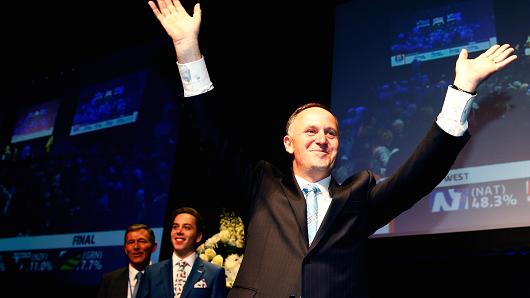
Yes the Left have taken a drubbing, but never mind, time to pick ourselves up off the floor, patch up our wound pride, dust ourselves off, cast around for our friends and allies, and re-enter the fray.
Lots of work for us to do, no more time for the factional fighting that has proven so destructive for the Left.
In the spirit of new badly needed Left Unity…..
The Left opposition needs to start setting the agenda
First up: Hone Harawira’s ‘Feed The Kids’ bill. This bill to address childhood poverty is still live on the floor of parliament and is likely to be one of the first things on the order paper.
With the departure of Harawira from parliament, this bill will have to be lobbied and fought for by the other parties of the Left and Centre, NZ First, Labour, The Green and Maori Party, and if possible United Future.
The government will counter that there is no money for such a program, however within a short time will announce New Zealand’s support for the endless war in the Middle East. The link needs to be made between the fact that there is never any shortage of money and treasure for war, but never any money to feed hungry children, or lift them out of poverty. On behalf of the 100,000 children that struggle to learn on an empty stomach, it is incumbent on Te Ururoa Flavell to pick up this dropped Taiaha, and spearhead this campaign in parliament.
Second up:
For the second time the government is again bailing out the technically insolvent Solid Energy, this week the government announced another $103million bail out \on top of the $150million the government gave them last year.
It is not often I agree with the Taxpayer’s Union, but I find myself agreeing with them this time, when the Executive Director of the TU, Jordan Williams says that all parties need to commit to abolishing New Zealand’s culture of corporate “Corporate Welfare”.
But more than just being an act of corporate welfare this is also a chilling climate crime.
Despite the huge continual endless bailing out of Solid Energy, the continuing stream of heartless redundancies of mine workers with little compensation, show that the time has well past for the government hear the call made by Gareth Hughes last year, that this money would be better spent paying for a just transition to jobs that don’t fry the planet.
“Coal is not going to be the fuel of our future if we are to stabilise our climate.
“New Zealanders and Solid Energy workers need a just transition into more sustainable jobs – jobs that don’t fry the planet.”
Gareth Hughes October 1, 2013
And on Thursday the government announced another $8million of the public’s money will be given to help make it easier for people to invest in oil and gas exploration. No doubt this other piece of corporate welfare will have been written at the behest of the fossil fuel industry, worried at the growing international fossil fuel divestment movement.
This subsidy of the oil company investors using tax payers money is an open slap in the face to the international divestment campaign.
Business As Usual needs to be opposed
As John Key declares, “Business As Usual”.
In response, the combined Left need to make a big showing at the march for the climate in Auckland today. The New Zealand March For Climate is held being in conjunction with similar marches being held in 88 other countries.
On Monday, the world leaders conference on climate change is being held in New York, unfortunately for us, New Zealand will be embarrassed before the world by being represented at this conference by the National Government.
The point needs to be made, (here and in New York), that by actively opposing the international divestment movement, New Zealand, from being a world leader on environmental and peace issues, has on climate change, become a world scab for the fossil fuel industry.


